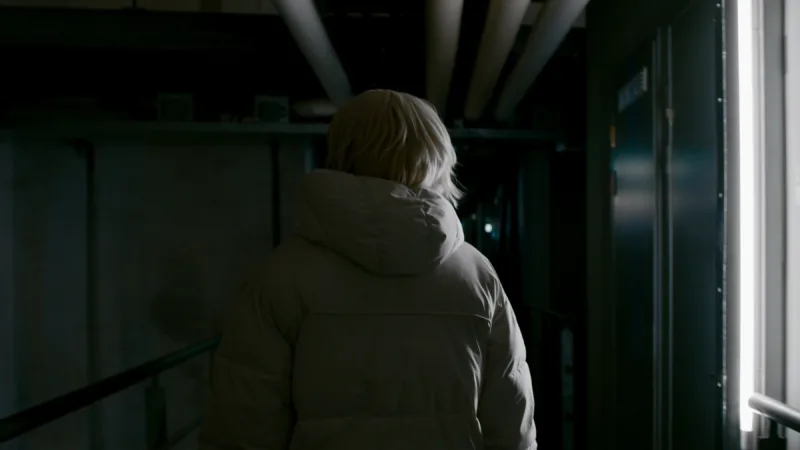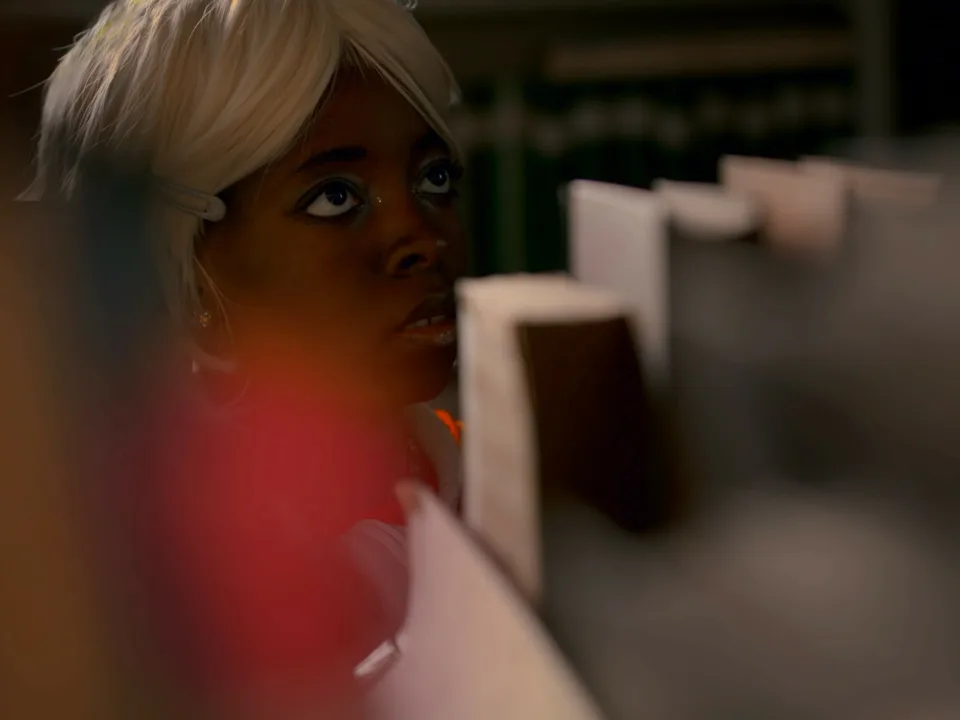“The exhibition 'Holy. Energy. Masters' presents a triad of voices from the youngest generation of artists, questioning the conflicts of Eurocentric knowledge, values, and systems and enabling intelligent, poetic, and geographical shifts in perspective.” – Jana Baumann, curator.
For the exhibition “Holy. Energy. Masters. ars viva 2023”, this year’s recipients of the renowned ars viva prize for emerging artists – Paul Kolling, Shaun Motsi, and Leyla Yenirce – are developing new, large-scale productions at Haus der Kunst. All three artists address current political, ecological, and social issues in their work. With this exhibition, Haus der Kunst continues its commitment to a younger generation of artists. The cooperation with the Kulturkreis der deutschen Wirtschaft im BDI takes place on the occasion of the seventieth anniversary of the prestigious ars viva prize for emerging artists.
Holy
In Leyla Yenirce’s sound installation Holy Water
(2023), a spherical crescendo unfolds, reaching consciousness through the body. Continuing traumatic historical events are transformed into a poignant perceptual experience. The work is based on a BBC interview recorded in Lalish, the holy temple of the Yazidi in northern Iraq. Here, the guardian of the sacred Kanîya Sipî spring rebaptises women and girls who have survived the genocide carried out by the so-called Islamic State since 2014. Through the ritual, they become Yazidis again, because they would have otherwise been ostracised from the community as a result of the sexual violence perpetrated against them. The ritual of purification and healing resonates with both the Jewish tradition of the mikvah and the Christian baptism of Jesus by John the Baptist. It was recently developed during the genocide to provide respite for the physically and psychologically wounded. Leyla Yenirce approaches this ritual from a tonal perspective: Bright synthesizer sounds and manipulated field recordings emerge from found sound material. The virtuoso composition of different layers of sound shatters hierarchical narratives in favour of a transcendental experience that conveys the purification and overcoming of trauma while at the same time questioning its limits.



Energy
Paul Kolling's expansive installation and the film of the same name, Energy
(2023), are devoted to the opaque pricing of energy and the public
debate about it, which has come to an explosive head with the current
war in Europe. Kolling is not concerned with a purely scientific
investigation, but rather with the social, highly emotional discourse,
which is contrasted with the economy, which follows a sober logic of
exploitation. The two-part work refers to the visible and at the same
time invisible architecture of the European Energy Exchange (EEX). This
real existing place of energy exchange and the processes of energy price
formation are hardly known to the broad public. Its role is hotly
contested by the business world, as well as by journalists, experts, and
activists. Kolling’s monumental textile construction replicates the
three window fronts of the main floor of the EEX on the 23rd floor of
the City-Hochhaus in Leipzig. Following the geographical orientation of
the building, the installation protrudes into the space like a
disturbing intervention. The accompanying film reveals absurd
contradictions through the juxtaposition of interviews with various
stakeholders and formulates fundamental questions of economic ethics
about the current struggle for resources.



Masters
With MASTERS (2023) Shaun Motsi
continues his investigation into contemporary visual culture, looking
specifically at the production and distribution of moving-image content
in an increasingly digitized post-pandemic world. The video work
appropriates the didactic talking head format and explores the emergent
‘edutainment’ genre of online instructional video platforms. One day, Mr
Clarke, a retired Black independent filmmaker, receives an invitation
from Masters, a controversial online learning platform. The
collaboration goes off the rails when the start-up’s uncompromising
agenda, darkly determined to destabilise and radically redefine
education, forces the protagonists to re-evaluate their relationship to
knowledge, study, community, and the changing landscape of
institutionalised learning. Inspired as much by independent and new wave
cinema, as by content creators on social media, Motsi allows aspects of
comedy, thriller, horror, and drama to give rise to a film structure
that, in critical reference to cinematic ‘hero’s journeys’, is radically
condensed into a mini-epic short film of challenging speed. Motsi
analyses and critiques processes of knowledge production, in particular
how institutions and spaces of learning determine who has access to
knowledge, how that knowledge is accessed and how it is passed on,
creating ground-breaking thinking spaces for new social structures.



With this exhibition, Haus der Kunst continues its commitment to a younger generation of artists. The cooperation with the Kulturkreis der deutschen Wirtschaft im BDI e.v. takes place on the occasion of the 70th anniversary of the prestigious ars viva award for young artists.
Curated by Jana Baumann with Manuela Hillmann
An exhibition of Haus der Kunst Munich in cooperation with the Kulturkreis der deutschen Wirtschaft im BDI e.V.
With the kind support of the Canadian Embassy.




